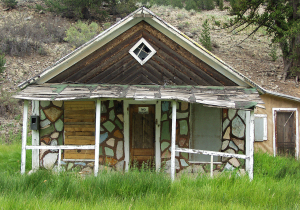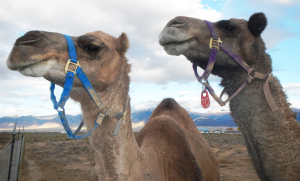by John Mattingly
I recently acquired eight female jenny miniature donkeys and one miniature male jack, together with three youthful donkey offspring. This occurred in a complex trade involving 111 goats, a terracer blade, a jayhawker, an angular boring tool and a rusty Fresno. But I digress. Having donkeys around has reminded me of all the stories I’ve heard, and been party to, over the last donkey’s years.
The first that comes to mind is back in my early years as a farmer when my friend Willy pulled into my yard one hot summer afternoon with a braying jack in his horse trailer. …
“I heard you coming a ways off,” I said, stepping out of the farm shop.
“Ain’t that the purdiest sound?” Willy said. “They call him the Rocky Mountain Canary, a honk known from peak to peak. You won’t believe what a heckuva deal I just made. If you’re nice to me, I might even let you in on it.”
“Anything’s possible,” I said. The local gentry had already offered me, a relative newcomer to the farming community, several deals that had been great – for them.
A roundish man with a big white hat and a face that never stopped smiling, Willy pulled a couple of ice-cold longnecks from a cooler in his pickup. We quenched our thirst while admiring the jack, a truly handsome beast with a slick gray coat, clownish lips and ears like a pair of sabers.
The jack looked at me with a doleful longing, and then honked a lonesome tune reminiscent of Hank Williams, “Your cheating heart, will walk the floor. …”
“Here’s the deal,” Willy said, a hand on my shoulder. “I got this jack in such a great deal, I can’t even tell you. What’s important is: I have a guy who’s going to buy this jack for three hundred bucks, but he can’t take him until next week. Situation with the wife, or some such complication, you know how it is. But the buyer’s good for the three hundred, no doubt there.”
“Sounds … good,” I said, with measured enthusiasm.
“You ain’t a woofin’ it’s good. Problem is, I got no place to keep the jack, being as my sisters won’t have anything mixing with their precious barrel-racing horses.”
“Uh, well, I don’t know, but …”
“I’ll make it a long story with a short ending: I’m gonna give you a garn-teed, front-half, no-strings, money-on-the-way, half interest in this jack for fifty bucks. You keep him in your corral for a week, the buyer comes over, you get a hundred and fifty, plus fifty to boot. Don’t be a dumb ass. Saddle up this gift horse while other guys are checking its teeth.”
It might have been Willy’s fast talk with the numbers, or it might have been the earnest look in the eyes of the jack, or again it might have been the hot sun and cold beer that convinced me to give Willy a fifty dollar bill, after which he unloaded the jack. Only as Willy pulled away in a cloud of dust did I think of Tom Sawyer’s friends whitewashing a fence.
A week or so went by, and I heard nothing from Willy. The jack, however, came to feel right at home in the corral, eating whatever hay and oats he was given, and dutifully singing at dusk and dawn, or whenever he took a notion to communicate with a distant relative, real or imagined. We named him Jerusalem.
We had milk goats at the time, and on one occasion my wife left a milk bucket close to the corral while gathering eggs. Jerusalem leaned over and gulped down the milk in a couple of chugs. Thereafter, when we walked by with the milk buckets, he crooned with such wanton desperation that we finally relented and let him lick the buckets clean, but only after we’d strained our milk into gallon jars.
Time passed, and one day our neighbor to the west, Bill, came by to see if I had any hay for sale. When he saw the jack in our corral, he mentioned there’d been quite a situation down at the Sale Barn lately. A smile crossed his face when he told me, “People are locking their horse trailers these days.”
“Oh yeah?” I had to ask. “What for?”
“It seems,” Bill said, his smile breaking out into a chuckle, “that people are parking their horse trailers in the sale barn parking lot and going in, only to come out to find a jack or a jenny in their trailer.”
“Well,” I said, “that’s interesting.”
“Asses are plentiful; you can’t hardly give the sumbitches away.”
Several weeks later, I saw Willy’s rig in his yard. I stopped and knocked on his back door. He answered with a giant horse laugh.
“I heard about the sale barn,” I said, trying not to raise my voice.
“You thought? …” Willy broke into such a fit of laughter that he couldn’t speak in complete sentences. “Three hundred … fifty boot!”
“Thanks, my friend,” I said.
Finally, Willy managed, “Hey, listen, take it easy. Every newcomer has to be baptized. Remember: Everybody plays the fool, sometime … no exceptions to the rule.”
“I’ve been here for over a year,” I pointed out.
“A year? …” Willy said with plenty of sauce on the side. “My people been here four generations.”
“You could at least kick in a little for feed,” I suggested.
“Remember me mentioning when we put this deal together that you got the garn-teed front-half, no-strings? Remember that? Meaning: you have the honor of feeding him.”
Fearing I might do or say something I would later regret, I left.
Maybe Willy wanted to rub it in, or maybe the guilt finally caught up with him, but for whatever reason, he dropped by to see me one afternoon about a month later. I was finishing up a shed addition in the corral where Jerusalem stood. It was a hot, cloudless, late August day. I ran my sleeve across my forehead.
“No hard feelings,” Willy said. “You gotta admit, he’s a damned good-looking jackass, even though he might as well be a statue. Hey, is he even alive, or did you have him stuffed?”
“Actually, we like the old boy.”
“What did I tell ya. Jacks are good company. Speaking of which, I have a few longnecks in the cooler. What say?”
We put down a few, Willy telling me about a family squabble involving his sisters. When he caught on to my disinterest, he said, “How come the ol’ jack ain’t honkin’ for us? He oughta honk when people come around.”
“How would you know?”
Willy winked. “Watch.” Three beers to the wind and a fourth in hand, Willy sidled along the corral rails to the place where Jerusalem stood. With a smile as wide as the Mississippi, Willy climbed up and over the rails, seating himself comfortably on Jerusalem’s hind quarters. “Check it out,” he said, thrusting up his beer. “Best seat in the house.”
When Jerusalem didn’t move so much as a hair, Willy decided to dig his heels into his withers, which indeed caused the sleeping giant to honk, but near the end of his final, wheezing exhale, Jerusalem jerked forward with a sudden and mighty buck, his tail and hind legs reaching a simultaneous zenith. Willy flew up and slightly south as if shot from a hairy cannon – his hat, legs and arms flailing as he soared toward the shed addition I’d been working on. To avoid the shed roof, Willy jerked himself to the north, but his neck passed treacherously close to the corner point of the corrugated metal eave. He landed in a pile of manure, squarely on top of his recumbent beer bottle.
“Dang!” he yelled, “That wasn’t as much fun as it looked like. The beast bucked me s’high a bird coulda built a nest in my hiney. I coulda been killed!”
I started to laugh but thought better of it when I saw real anger in Willy’s eyes.
“You’re danged lucky, is what you are,” he said, eyeing the sharp edge of the sheet metal that shone just above his head. “If I’da hit that thing and cut my throat, my family woulda sued your A-S-S.”
I had to think a minute before saying, “Do you recall the original deal about my half and your half?”
“What?” cried Willy.
“The offending half of the bucking A-S-S belongs to you, my friend.”
John Mattingly cultivates prose, among other things, and was most recently seen near Poncha Springs.



